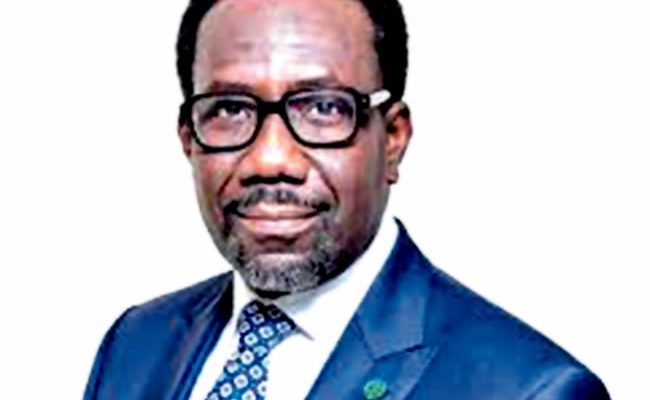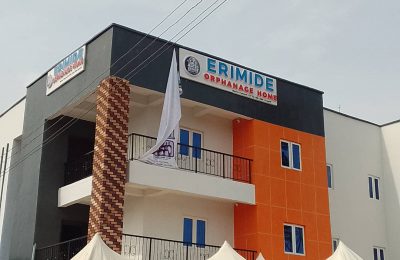

In this piece, JOSEPH INOKOTONG writes on the overriding need for medical insurance in the midst of the dwindling economic fortune of Nigeria.
IN this era of harsh economic climate in Nigeria that is enveloped in unpredictable outcomes, the need for health insurance for all and sundry cannot be overemphasised, because everyone needs it.

Medical insurance, also known as health insurance, is a type of insurance that covers medical expenses, such as doctor’s visits, hospital stays, prescription drugs, and other healthcare costs. It can be purchased through a private insurer or through a government-sponsored programme, such as Medicare or Medicaid.
Health insurance is different from travel insurance in that it is designed to cover one’s medical expenses, no matter where you are, whereas travel insurance is designed to cover unexpected events that occur during travel.
There are several reasons why it is a good idea to have health insurance. First, medical expenses can be very expensive and, without insurance, one would be left with a large bill if sickness or injuries occur. Having health insurance gives one access to preventive care, which can help the insured to stay healthy and prevent catching any health problems early. It can also help one afford prescription drugs, which can be costly without insurance, and having health insurance can give you peace of mind, knowing that you’ll be covered if something unexpected happens.
There are even more benefits to having health insurance than anyone can imagine. For example, many health insurance plans offer additional benefits such as dental and vision coverage, and some plans may also cover mental health services.
Additionally, many employers offer health insurance as part of their benefits package, which can make it more affordable to get coverage. Having health insurance can help you avoid financial hardship if you are faced with a major medical expense.
In taking health insurance, the insured must pay a premium. A health insurance premium is the amount you pay each month to keep your health insurance policy active. The premium amount is determined by several factors, including your age, where you live, and the type of plan you choose. Typically, you will pay your premium directly to the insurance company or through your employer, if they offer health insurance. When the need arises to see a doctor or fill a prescription, you will typically have to pay a deductible before your health insurance coverage kicks in.
A deductible is the amount a policyholder pays out of pocket before his/her health insurance benefits kick in. If the deductible is N1,000, the insured will need to pay the first N1,000 of his/her medical expenses before the insurance company starts covering costs.
Experts say it is important to note that not all medical expenses count toward the deductible. For example, preventive care services, like annual checkups, are usually covered without a deductible. And once the deductible is met, only the copay or coinsurance has to be paid for covered services.
Copays and coinsurance are two types of cost-sharing arrangements that a policyholder might have with health insurance. With a copay, a fixed amount, like N20, will be paid for a covered service, like a doctor’s visit, whereas with coinsurance, the insured will pay a percentage of the total cost of a covered service, like 20 percent. For example, if you have N100 doctor’s visit and you have a 20 percent coinsurance, you’d pay N20, and your insurance would cover the remaining N80.
Deciding which of the two to settle for really depends on one’s personal situation and preferences. Copays may be more predictable since one knows exactly how much to pay for covered services. However, coinsurance may end up being less expensive if one has a large medical bill. For example, if one has N10,000 hospital bill and has a 20 percent coinsurance, he would only have to pay N2,000, whereas if he had N200 copay, he would have to pay N200 for each day spent in the hospital.
Also, it is worth mentioning that some health insurance plans use a combination of copays and coinsurance. For example, one might have N20 copay for a doctor’s visit and 20 percent coinsurance for laboratory tests. When choosing a health insurance plan, it is important to consider all the different types of cost-sharing arrangements and how they might affect out-of-pocket costs.
The premium is the amount you pay each month for your health insurance coverage. It is important to consider how much the premium will be and whether it is affordable. In addition to the premium, it is noteworthy also to look at the network of providers covered by the plan.
A network is a group of doctors, hospitals and other healthcare providers that have a contract with the health insurance company. If a provider is in the network, one will usually pay less for covered services. But more is likely to be paid if it is an out-of-network provider.
For example, if you have a health insurance plan with a network of doctors and hospitals, when you see a doctor or go to a hospital that is in the network, the insurance company has negotiated a discounted rate with that provider. So, when you receive care, a copay or coinsurance will be paid based on the discounted rate. But if you go to a doctor or hospital that is not in the network, the insurance company has not negotiated a discount, so a higher amount will be paid.
Also, it is important to consider whether the doctors and hospitals you currently use are in the network of a potential health insurance plan. Some plans may have a smaller network, which means there might be fewer doctors and hospitals to choose from. It is also worth noting that some providers, like specialists, may be in the network for some plans but not others. And sometimes networks can change, so it is a good idea to check with the insurance company before signing up for a plan to make sure the preferred providers are still in the network.
If there is default in payment of premium, the health insurance coverage will usually be cancelled. The grace period for missing a premium payment can vary depending on the plan and the country’s laws. But typically, if a default occurs in the payment of premium within 30 days of the due date, the coverage will be terminated. Anyone struggling to pay premiums should contact the insurance company to see if there are any payment assistance programmes available.
There are a few options that may be able to help those struggling to pay their premiums. First, a check to ascertain if they are qualified for a subsidy through the Federal Government’s health insurance marketplace is often recommended in some jurisdictions. This is because subsidies are available to people who meet certain income requirements. One can also check if his country of residence has any programme that can help in offsetting the premium. Some countries have programmes that offer financial assistance to people who need help paying their premiums.
In addition to subsidies and state assistance programmes, one may also want to consider a catastrophic health insurance plan. Catastrophic plans have a low monthly premium, but they only cover a limited number of services. They are designed to protect people from very high medical costs if they have a serious illness or injury. They may be a good option for those worried about affording their premium but still want to have some coverage in case of a major medical event.
It is important to keep in mind that catastrophic plans have a high deductible, which is the amount you have to pay out of pocket before the insurance company starts paying for your care. So, these plans are only a good option if you don’t have any major medical expenses during the year. A catastrophic plan may not be the best option for people who may need a lot of medical care.
There may be other resources that can help people who are worried about paying for their care even when they have insurance. Again, in some countries, many hospitals and doctors’ offices offer financial assistance programmes for people who have limited income.
One type of programme is called a charity care programmes, and is offered by hospitals and doctors’ offices. They provide either discounted or free care to people who meet certain income requirements. The requirements and the amount of assistance available can vary, so it’s important to check with the hospital or doctor’s office to see what’s available.
Another option is called a patient assistance programme. Patient assistance programmes are offered by pharmaceutical companies, and they provide either free or low-cost medications to people who meet certain income requirements. These programmes are usually specific to a certain medication or condition, so it’s important to check with the company that makes the medication to see if they offer a patient assistance programme.
Another type of programme is called a Medicaid waiver programme. These programmes are offered by governments in some countries, and they provide assistance to people who have a disability or a chronic medical condition. The programmes can help pay for things like home care, personal care, and other services that are not typically covered by Medicaid. To qualify for a Medicaid waiver programme, one usually needs to meet certain income and medical requirements.
For people who are unemployed and need help paying for health care, there are a few options available for them. One is called the Consolidated Omnibus Budget Reconciliation Act, or COBRA. COBRA allows people to keep their health insurance from their previous employer for a limited period of time after they become unemployed. The other option is called the Health Insurance Marketplace, which is a website where people can shop for and enrol in health insurance plans. People may also be eligible for subsidies to help them pay for their chosen plan.
COBRA is a programme that is specific to the United States. The Health Insurance Marketplace is also specific to the United States, but other countries may have similar programmes that allow people to shop for health insurance plans.
Some countries, like Canada, have a national health insurance programme that provides coverage to all residents. Other countries, like the United Kingdom, have a publicly funded healthcare system that is free at the point of service. Each country has its own system, so it is important to research what is available in one’s country of residence.
In Nigeria, there is a national health insurance programme called the National Health Insurance Scheme. This programme provides insurance coverage for a range of health services, including hospital care, outpatient care, and prescriptions. The programme is administered by the National Health Insurance Scheme Authority, and it is funded by contributions from employers and employees. It is still relatively new, and it is not yet available to everyone in all States in Nigeria.
YOU SHOULD NOT MISS THESE HEADLINES FROM NIGERIAN TRIBUNE
2023 Ballon d’Or: Osimhen finishes eight, becomes highest ranked Nigerian footballer
Super Eagles and Napoli forward, Victor Osimhen, has achieved the highest ranking for a Nigerian in the history of the Ballon d’Or football award. Osimhen achieved this milestone by ranking eighth in the 30-man list of the 2023 Ballon d’Or award...….
Tinubu intervenes in Fubara, Wike rift
President Bola Tinubu has moved to end the rift between Governor Simi Fubara of Rivers State and his predecessor in office, Nyesom Wike, which has dragged the state into a political crisis.The president used the opportunity of Tuesday’s meeting of the Police Council, which both attended as members, to ostensibly end the feud between the two political allies……..
Reps summon Betta Edu over N1.1trn Conditional Cash Transfer
The House of Representatives on Tuesday summoned the Minister of Humanitarian Affairs and Poverty Alleviation, Betta Edu, over the implementation of the N1.1 trillion Conditional Cash Transfer (CCT) for vulnerable Nigerians.The resolution which was passed sequel to the adoption of a motion under ‘Matters of urgent public importance’ sponsored by Hon. Moshood Adebayo (PDP-Osun), who harped on the need to scrutinize the policy on the CCT....….…
2024 Olympic Qualifiers: Super Falcons thrash Ethiopia, zoom to next round
Nigeria’s Super Falcons have booked a place in the third round of the qualifiers for the 2024 Olympic Games after a 4-0 win against Ethiopia at the Moshood Abiola Stadium, Abuja on Tuesday. The former African champions won the second-round contest 5-1 on aggregate…..…
Four kinds of people you should date
It’s a few months to the end of 2023, and you still wonder why you have not met a good person to do matching pyjamas with. Well, here are a few tips about the quality of people you should date as you move on from your past sour relationships......…
Ondo Assembly suspends impeachment of deputy gov Aiyedatiwa
The Ondo State House of Assembly has suspended the impeachment proceedings against Deputy Governor Lucky Aiyedatiwa following the refusal of the Chief Judge of the state, Olusegun Odusola, to set up a panel for the exercise...…
EDITORIAL: Sheikh Gumi’s incendiary outburst
RECENTLY, a Kaduna State-based Islamic cleric, Sheikh Ahmad Gumi, set the polity on edge, accusing the Bola Ahmed Tinubu administration of committing the unpardonable sin of making a Nigerian of southern origin and immediate past governor of Rivers State, Barrister Nyesom Wike, the the minister of the Federal Capital Territory (FCT)..……








